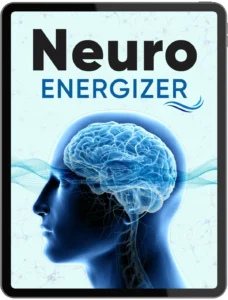In today’s fast-paced world, staying mentally sharp and focused can be a daily struggle. Whether you are a student preparing for exams, a professional juggling multiple tasks, or simply someone trying to improve productivity, focus and concentration pills have become increasingly popular. These supplements are designed to enhance mental clarity, reduce brain fog, and improve cognitive performance. But do they really work? And which ones are worth your attention? Let’s explore everything you need to know about focus and concentration pills and how to choose the best option for your mind and lifestyle.
What Are Focus and Concentration Pills?
Focus and concentration pills, often called nootropics or brain supplements, are formulas that support cognitive functions such as memory, attention, learning, and motivation. They usually contain a blend of natural herbs, vitamins, minerals, and amino acids that nourish the brain and optimize its performance.
Some of the most common ingredients found in these pills include omega-3 fatty acids, ginkgo biloba, bacopa monnieri, L-theanine, caffeine, and various B vitamins. Each of these ingredients plays a specific role in enhancing brain activity, increasing blood flow, or supporting neurotransmitter function.
How Do Focus and Concentration Pills Work?
The brain is a highly complex organ that requires adequate nutrients, oxygen, and chemical balance to function efficiently. Focus and concentration pills work by targeting key mechanisms involved in brain health:
- Improving neurotransmitter function – These pills can enhance the production and signaling of brain chemicals such as dopamine, serotonin, and acetylcholine, which play critical roles in focus, alertness, and mood.
- Boosting blood circulation to the brain – Ingredients like ginkgo biloba and omega-3 help increase cerebral blood flow, ensuring that the brain receives enough oxygen and nutrients.
- Supporting energy metabolism – Some vitamins and amino acids found in these supplements help convert food into energy, providing sustained mental stamina throughout the day.
- Reducing stress and anxiety – Adaptogenic herbs such as ashwagandha and Rhodiola rosea help balance cortisol levels, promoting a calm and focused mind.
Key Ingredients That Support Focus and Concentration
Let’s take a closer look at some of the most effective natural ingredients commonly found in focus and concentration pills:
- Ginkgo Biloba: Known for improving blood flow and oxygen delivery to the brain, it helps enhance memory and focus.
- Bacopa Monnieri: An ancient Ayurvedic herb proven to support memory retention and mental processing speed.
- L-Theanine: An amino acid found in green tea that promotes relaxation without causing drowsiness, making it an excellent companion for caffeine.
- Caffeine: A well-known stimulant that increases alertness, attention, and energy levels when used in moderation.
- Omega-3 Fatty Acids: Essential for maintaining brain cell structure and communication between neurons.
- B Vitamins (B6, B9, B12): These vitamins are vital for energy production, neurotransmitter synthesis, and overall cognitive health.
Benefits of Taking Focus and Concentration Pills
- Improved attention span: Helps you stay engaged and productive for longer periods.
- Enhanced memory and learning ability: Supports better information recall and understanding.
- Reduced mental fatigue: Provides steady mental energy throughout the day.
- Better stress management: Promotes calmness and mental balance during pressure.
- Increased motivation: Supports neurotransmitters that boost drive and ambition.
Are Focus and Concentration Pills Safe?
Most focus and concentration pills that use natural ingredients are considered safe when taken as directed. However, not all supplements are created equal. Always choose products from reputable brands that provide transparency about their ingredient list, dosages, and manufacturing standards.
It’s also important to consult your doctor before starting any supplement, especially if you have existing health conditions or are taking medications. Some ingredients, like caffeine or ginseng, may interact with other drugs or cause mild side effects such as jitteriness or insomnia.
Natural Ways to Support Focus and Concentration
While supplements can provide a great boost, they work best when combined with healthy lifestyle habits. Try incorporating the following strategies into your daily routine:
- Get enough sleep: Aim for 7–9 hours of quality rest to allow your brain to recharge.
- Exercise regularly: Physical activity improves blood flow to the brain and boosts cognitive function.
- Eat brain-healthy foods: Include fatty fish, nuts, seeds, berries, and leafy greens in your diet.
- Stay hydrated: Even mild dehydration can impair concentration and memory.
- Practice mindfulness: Meditation and breathing exercises help calm the mind and enhance focus.
Choosing the Right Focus and Concentration Pills
When selecting a supplement, look for formulas that contain clinically tested ingredients, transparent labeling, and positive customer reviews. Avoid products that rely solely on synthetic stimulants or make exaggerated claims.
A good product should include a balanced mix of vitamins, minerals, amino acids, and herbal extracts that work synergistically to enhance brain performance naturally.
Conclusion
Focus and concentration pills can be a valuable tool for anyone looking to improve mental performance, productivity, and overall brain health. When combined with a balanced diet, proper rest, and mindful living, these supplements can help you unlock your full cognitive potential.
Whether you are studying for an exam, managing a demanding job, or simply striving for sharper thinking, supporting your brain with the right nutrients and habits can make a remarkable difference in your daily life.
==> Read this shocking report now before it’s taken down by Big Pharma.


